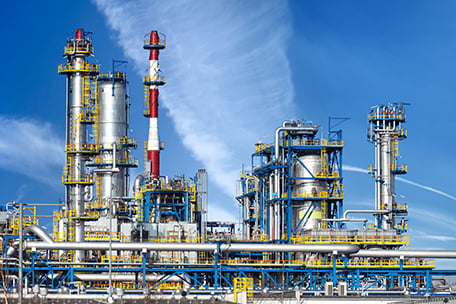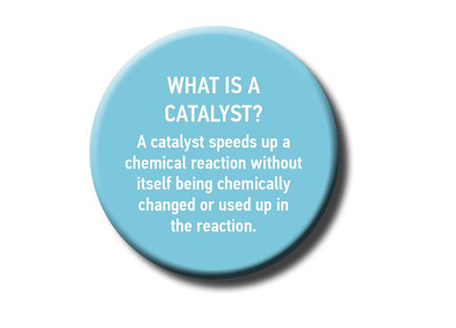Platinum is key
Once crude oil has been through the initial distillation process, work can begin to turn the resultant low-octane hydrocarbons into high-octane end products by using a platinum-based catalyst in secondary processes known as catalytic reforming and isomerisation.
Isomerisation works by rearranging the chemical structure of the low-octane hydrocarbons to create a compound with the same molecular formula, yet with ‘branched chains’ rather than ‘straight chains’. It is the presence of these branched chains that raises the octane-rating of fuel, producing higher-octane gasoline that burns better in modern combustion engines.
Catalytic reforming is another process involving isomerisation which uses platinum as a catalyst to improve the octane rating of hydrocarbons. It also results in the production of other petrochemicals that are used as the raw materials to make plastics, synthetic rubber and polyester fibres.
Platinum is key to the production of gasoline as it increases reaction rates and improves product yields. Without it, the petroleum industry would not be able to satisfy global demand for gasoline, which, according to the Organisation of the Petroleum Exporting Countries, is forecast to rise by approximately one per cent per annum until 2025.
Continued worldwide expansion of gasoline and gasoline-hybrid vehicle production, especially in India and China, lies behind this growth, which is predicted to occur despite the slow, yet growing, penetration of electric vehicles — both battery and fuel cell — and improvements in fuel economy seen in gasoline engines.


